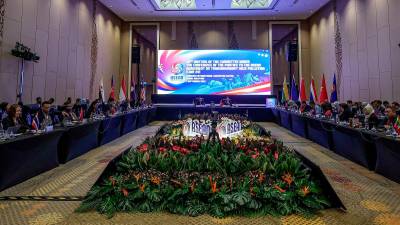LANGKAWI: Malaysia has reaffirmed its commitment to the ASEAN Roadmap on a Haze-Free Region 2023–2030, which serves as the primary guide for achieving a haze-free ASEAN by 2030.
The Ministry of Natural Resources and Environmental Sustainability highlighted this commitment at the 20th Meeting of the Committee under the Conference of the Parties to the ASEAN Agreement on Transboundary Haze Pollution.
Malaysia chaired the meeting through the ministry in conjunction with its ASEAN Chairmanship in 2025.
The roadmap’s implementation ensures member states’ actions are more targeted, coordinated, and impactful by improving preparedness for forest and peatland fires.
It also promotes sustainable management of natural resources across the region.
Key strategies discussed include comprehensive prevention through strengthening enforcement of laws related to open burning.
Member states will continuously monitor fire-prone areas and implement sustainable land-use practices.
The region is using satellite technology, weather modeling, and real-time data sharing for enhanced early warning systems.
This approach helps monitor hotspots and identify early risks of transboundary haze pollution.
Strengthened regional coordination is being achieved through regular technical meetings and joint training.
Closer alignment of cross-border policies and strategies forms a critical part of this effort.
The meeting covered the status of the ASEAN Transboundary Haze Pollution Control Fund and progress on the Second ASEAN Haze-Free Roadmap.
Discussions also included the new ASEAN Coordinating Centre for Transboundary Haze Pollution Control.
The ASEAN Investment Framework for Haze-Free Sustainable Land Management was another key topic.
The meeting served as an important platform to prepare for the 18th ASEAN Ministerial Meeting on the Environment.
Senior officials from across ASEAN discussed key outcome documents for consideration and approval at AMME-18.
Discussions focused on the draft ASEAN Joint Statement on Climate Change to COP30 under the UNFCCC.
The meeting assessed new nominations for ASEAN Heritage Parks and reviewed the ASEAN Centre for Biodiversity’s Governing Board Report.
These meetings provide member states with opportunities to reaffirm their shared commitment to regional cooperation.
They focus on environmental protection, climate change, and transboundary haze pollution.
The outcomes will strengthen ASEAN’s collective efforts towards a sustainable, resilient, and haze-free region.
The three-day AMME-18 brings together ASEAN environment ministers and senior officials at Langkawi International Convention Centre.
Participants will discuss regional cooperation on sustainability and inclusive environmental management. – Bernama
